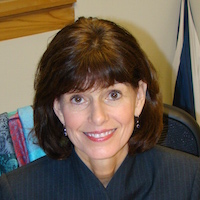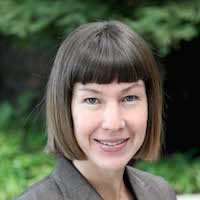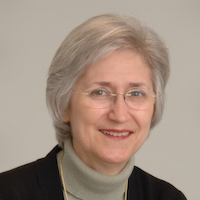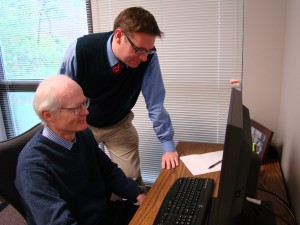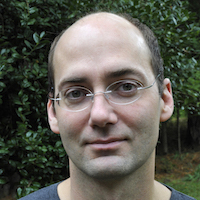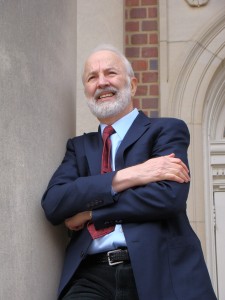Influencing policy
UNC Gillings School of Global Public Health faculty members and alumni lead state, national and international programs, making an impact upon health outcomes including disease reduction, food choice improvement and enhancement of services for domestic violence victims.
Leah Devlin, DDS, MPH, Gillings Professor of the Practice in health policy and management, secures economic safety and health for North Carolina’s children through her appointment to the policy group Action for Children. Currently, she tackles smoking and obesity prevention.
As North Carolina’s state health director and public health division director from 2001 to 2009, Devlin accomplished a great deal, including policy changes for public schools. Under her leadership, the health department developed comprehensive school health programs, placed nurses in schools, mandated regular physical activity and required nutritious lunches. During her tenure, mental health and injury prevention services also were introduced.
“You cannot separate health and education from outcomes,” Devlin says. “Children must be healthy to learn. If a person doesn’t graduate from high school, he or she is less able to earn a decent wage and therefore less able to live in healthy environments or purchase healthy foods. The impact of poverty, lack of education and housing issues shapes health policy.”
Although 2009 alumna Kristal Chichlowska, PhD, MPH, concentrates on social indicators driving California’s health disparities, her work is important to North Carolina. As director of the California Tribal Epidemiology Center at the California Rural Indian Health Board (www.crihb.org), she serves 109 American Indian tribes routinely underrepresented in epidemiologic data.
Physicians often misclassify American Indian and Alaska Native patients’ ethnicities, masking the groups’ childhood and chronic disease burdens. Without accurate data, health programs cannot secure funding to meet community needs.
“For instance, we found California’s American Indians were misclassified in state health databases up to 60 percent for some health outcomes,” Chichlowska says. “Now, we advocate for oversampling, pushing the state capital and federal agencies for data improvement.”
Since 2010, the epidemiology center has surveyed these communities about diseases and published data online, she says. This information bolsters CRIHB’s outreach effort to enhance policies.
Sandra Martin, PhD, maternal and child health professor, evaluates the performance of policies and strategies. As a Governor’s Crime Commission member, she and her co-members analyze domestic violence and sexual assault programs and helped develop a standardized, statewide reporting system.
The question, she says, is whether these programs can use the system to provide care.
 “We’re surveying all programs about their capacity for using the new system, and we’ll offer necessary training,” she says. “We’re also looking at how well programs address substance abuse. It’s a sensitive topic people often ignore because they’re uncomfortable talking about it.”
“We’re surveying all programs about their capacity for using the new system, and we’ll offer necessary training,” she says. “We’re also looking at how well programs address substance abuse. It’s a sensitive topic people often ignore because they’re uncomfortable talking about it.”
Martin’s research revealed four components vital to understanding the efficacy of domestic violence and sexual assault services — the victim’s satisfaction with the services, victim’s progress toward goals, changes to violence victims experienced and changes in victims’ knowledge about services.
Martin also has studied child maltreatment in military families. She found abuse occurs more frequently when one parent — frequently the father — is deployed. Congress used these findings to increase family support services during deployments.
The School’s dean, Barbara K. Rimer, DrPH, is chair of the President’s Cancer Panel, the group charged with monitoring the nation’s cancer effort.
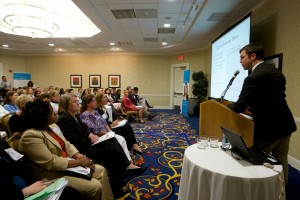
Dr. Noel Brewer addresses an audience in Raleigh, N.C., at the launch of the Cervical Cancer Free NC initiative in 2010. (Photo by Ramona DuBose)
The panel has organized a series of four workshops to develop strategies to accelerate cancer prevention by increasing the proportion of age-eligible individuals who are vaccinated against human papillomavirus (HPV) infections. Noel Brewer, PhD, associate professor of health behavior, co-chaired the second workshop, titled “Achieving widespread vaccine uptake.”
Increasing vaccine access is critical to eliminating avoidable disease, Rimer says.
“A vaccine to prevent cancer is the Holy Grail of cancer control. Yet, only about 30 percent of girls and less than 2 percent of boys have been vaccinated,” Rimer says. “If we identify promising strategies to increase HPV vaccine use, then, indirectly at least, we’d contribute to preventing cancers. That’s why I’m doing this.”
While the advisory panel cannot mandate action, Rimer wants health organizations to help implement proposed policies and recommendations. Cervical Cancer Free NC (www.ccfnc.org), based at the School and led by Brewer, is one such effort, aiming to reduce or eliminate cervical cancer in North Carolina by advocating for vaccination, screening and treatment.
HPV causes more than 560,000 new, worldwide cases of cervical, oropharyngeal and other cancers annually.
For Brenda Edwards, PhD, who received her biostatistics degree at the School in 1975, the goal is reducing all cancers — her objective at the National Cancer Institute (NCI) since the 1990s. Now, she is senior adviser to NCI’s Surveillance, Epidemiology and End Results (SEER) database — a registry from 15 major cities, totaling roughly 28 percent of the U.S. population. The data include patient demographics, primary tumor site and morphology, stage-at-diagnosis, first-treatment course and follow-up.
“These data look beyond clinical trial results for a better picture of how to use and apply outcomes to impact total populations,” Edwards says. “Studies and modeling groups can analyze SEER data to see who gets cancer, mortality rates, data changes over time, risk factors and how to minimize risk.”
The Food and Drug Administration uses the statistics to determine orphan drug status (an orphan drug is developed specifically to treat a rare medical condition). The statistics also help NCI extrapolate the number of new diagnoses annually. Such estimates inform Medicare and Medicaid policy decisions, Edwards says.
For many patients, health care is obtained at rural, critical-access hospitals (CAHs), which often don’t monitor their financial status. To help these vital facilities track expenditures, George Pink, PhD, Humana Distinguished Professor of Health Policy and Management, and Mark Holmes, PhD, health policy and management assistant professor, developed the Critical Access Hospital Financial Indicators Report, based on data from 300 CAHs.
Using 21 financial ratios, the report identifies hospital financial strengths and weaknesses. Thus, facility and state program administrators can pinpoint institutions that could benefit from grant funding or consultant guidance, Pink says.
“The hope is that these data will help hospital managers think strategically and strengthen their system to adapt and survive when federal reimbursement rules change,” Holmes says. “It’s something they might not have been able to do prior to getting these reports.”
In 2009, President Obama appointed David B. Richardson, PhD, associate professor of epidemiology at the School, to the White House Advisory Board on Radiation and Worker Health.
Two years later, Japanese citizen groups and public health researchers called upon Richardson’s expertise in radiation after a national disaster. When a horrific earthquake and tsunami damaged a nuclear energy facility, Richardson advised about the development of policies that would keep the Japanese people safe and about long-term strategies to understand health effects of the disaster.
Richardson’s research investigates occupational and environmental causes of disease, with a particular focus on ionizing radiation. He has served in various capacities at UNC since 1996 when he began as a postdoctoral researcher.
He has led a number of studies of workers at U.S. Department of Energy facilities focused on occupational health and radiation exposures. Previously, he worked at the World Health Organization’s International Agency for Research on Cancer in Lyon, France, and at the Radiation Effects Research Foundation in Hiroshima, Japan.
Dr. Barry Popkin (Photo by Linda Kastleman)Barry Popkin, PhD, W.R. Kenan Jr. Distinguished Professor of nutrition, improves global food choices by helping countries establish proper nutrition labeling guidelines. Currently, only The Netherlands has national labeling policies. This dearth of guidance troubled Popkin.
“I had to get involved when I saw the food industry — global and stateside — creating labeling systems to allow enormous amounts of sugary, salty and fatty foods to be labeled as healthy,” Popkin says. “I knew it was essential for a scientist to create an appropriate, science-based system.”
Based on World Health Organization and U.S. standards, these labeling policies reduce added sugars and sodium, lower trans and saturated fats, and increase whole grains, legumes, fruits and vegetables. Seven additional countries are considering a national labeling policy, Popkin says, to control obesity, diabetes and other diet-related ailments.
—Whitney L.J. Howell
Carolina Public Health is a publication of the University of North Carolina at Chapel Hill Gillings School of Global Public Health. To view previous issues, please visit sph.unc.edu/cph.

